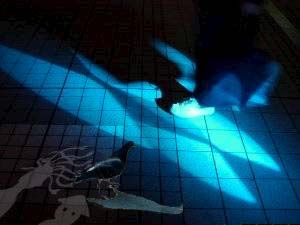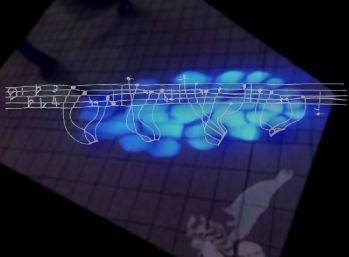Remote Ready Biology Learning Activities has 50 remote-ready activities, which work for either your classroom or remote teaching.
Serendip is an independent site partnering with faculty at multiple colleges and universities around the world. Happy exploring!
 | The Story of Evolution and |
 |
"T.S. Eliot was honest about wanting both writing and criticism to approach the condition of a science...with the writer as catalyst, entering into a tradition, performing an act of meaningful recombination....Readers fail when they allow themselves to believe...that fiction is the thing you...seek out when you want to have your own version of the world confirmed and reinforced...we have to ask of each other a little bit more."
(Zadie Smith, "Fail Better," The Guardian, January 13, 2007)
|
We will experiment, in this course, with two interrelated and reciprocal inquiries: whether the biological concept of evolution is a useful one in understanding the phenomena of literature (in particular: the generation of new stories), and whether literature contributes to a deeper understanding of evolution. We will begin with an exploration of the basis for the
"story" of evolution as developed by biologists, move on to a consideration of the
relevance of the concept of evolution for making sense of other bodies of information
and observations, and then turn to a consideration of one literary story growing out of
another. We will ask repeatedly: Where do stories (scientific and literary) come from? Why do new ones emerge? What causes them to change? Why do (must?) some of them disappear? We will consider the parallels between diversity of stories and diversity of living organisms, and think about what new insights into evolution and literature emerge from such
considerations.
This course is predicated on an assumption that progress on the sorts of questions being considered here is significant not only in the classroom but in a broader human context as well. Hence, the course is organized to contribute to public conversation, both by having a weekly on-line forum and by the on-line publication of course materials, including student papers. In considering the appropriateness of the course for their own educational objectives, students should be aware of this assumption and associated arrangements, and of the implications and obligations of engaging in a public arena, where individuals are responsible not only for their own education but that of others as well.

|
Syllabus Course Forum Area Photo Gallery of Final Performances Class Roster Instructions for Preparing and Posting Your Papers Instructions for Your Final Portfolio Origin of Images Course Requirements:
Discussion Notes
Web papers |